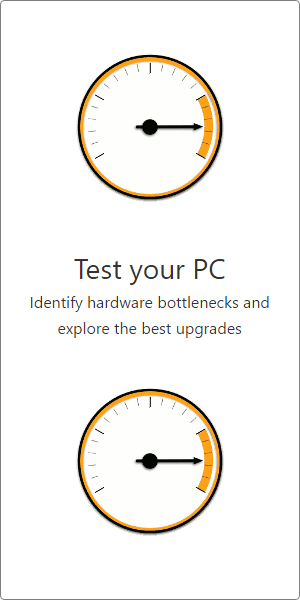Effective Speed
+37%
Poor: 86%
Great: 101%
SPEED RANK: 73rd / 714
Poor: 62%
Great: 73%
SPEED RANK: 105th / 714
| Effective 3D Speed
Effective 3D Gaming GPU Speed |
93.7 % | Much faster effective speed. |
68.3 % |
Average Score
+45%
Overclocked Score
+49%
Game FPS
+18%
 CSGO CSGO
Avg. Fps @ 1080p on Max |
200 Fps | Much Better CSGO Fps. |
128 Fps | |||
 Fortnite Fortnite
Avg. Fps @ 1080p on Max |
129 Fps | Slightly Better Fortnite Fps. |
120 Fps | |||
 PUBG PUBG
Avg. Fps @ 1080p on Max |
94 Fps | Better PUBG Fps. |
81 Fps | |||
 GTAV GTAV
Avg. Fps @ 1080p on Max |
85 Fps | Better GTAV Fps. |
76 Fps | |||
 LoL LoL
Avg. Fps @ 1080p on Max |
204 Fps | Better LoL Fps. |
183 Fps | |||
 Overwatch Overwatch
Avg. Fps @ 1080p on Max |
125 Fps | Better Overwatch Fps. |
102 Fps | |||
 The Witcher 3: Wild Hunt The Witcher 3: Wild Hunt
Avg. Fps @ 1080p on Max |
92 Fps | Much Better The Witcher 3: Wild Hunt Fps. |
63 Fps | |||
 Minecraft Minecraft
Avg. Fps @ 1080p on Max |
259 Fps | 306 Fps | Better Minecraft Fps. |
|||
 DOTA 2 DOTA 2
Avg. Fps @ 1080p on Max |
150 Fps | Better DOTA 2 Fps. |
131 Fps | |||
 WoT WoT
Avg. Fps @ 1080p on Max |
128 Fps | Slightly Better WoT Fps. |
117 Fps |
Value & Sentiment
+25%
Nice To Haves
+42%
Conclusion
Average Bench 93.7%
Average Bench 68.3%
User Builds
412,133
230,793
Systems with these GPUs
Top Builds that include these GPUs


